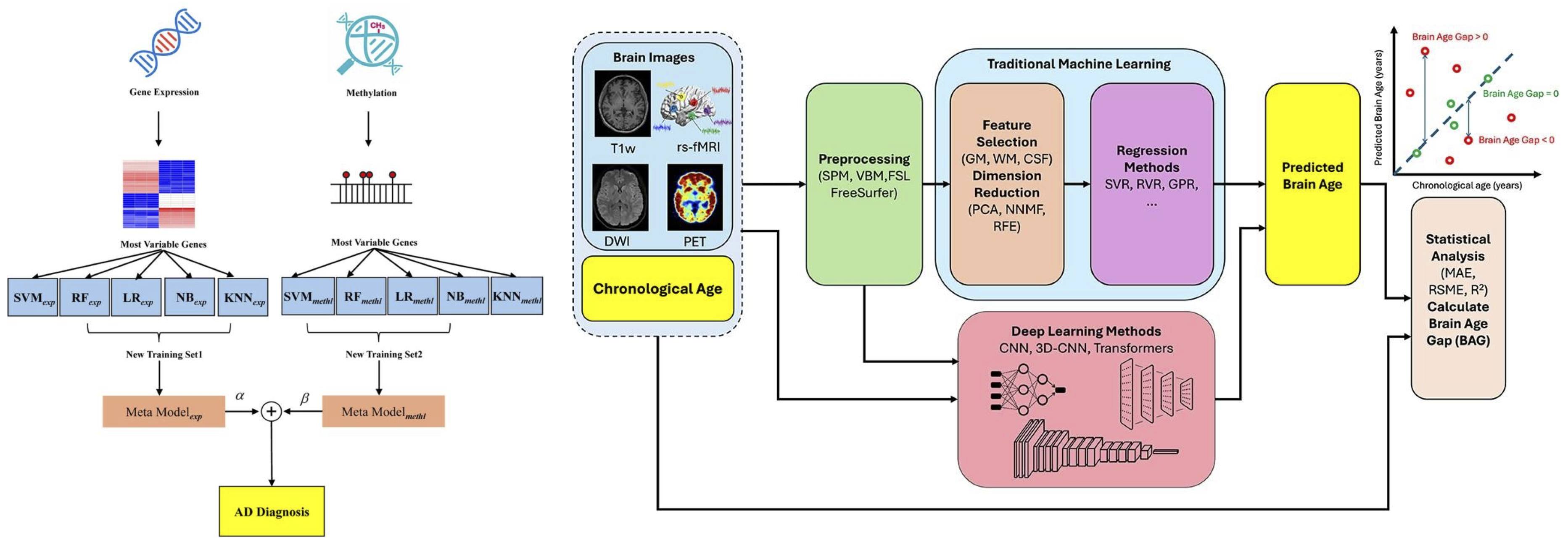Research
Our lab is part of the Department of Neurological Sciences at the University of Nebraska Medical Center. With a strong interdisciplinary background in neuroscience and data science, our research focuses on using machine learning and medical imaging processing methods to develop computational models for cutting-edge biomedical problems in clinics. We have collaborated extensively with neuroscientists, radiologists, psychologists, and clinicians on interdisciplinary projects related to cancers, Alzheimer’s disease, and addiction.
With the explosion of big data in medicine, artificial intelligence and machine learning (AI/ML) have become essential tools for cancer research. Our lab has developed a series of AI/ML approaches to address critical challenges in cancer research, including reducing health disparities, cross-modality synthesis, predicting survival probability, and identifying cancer subtypes. Our key contribution lies in developing specialized machine learning (including deep learning) models that seamlessly integrate multi-modal data, achieving superior predictive performance compared to existing methods.
In addition, we have developed multiple interpretable ML models and frameworks for disease classification and image segmentation. Unlike the black-box nature of deep learning models, our models provide clear insights into aging and disease biomarkers, helping to improve disease understanding.



